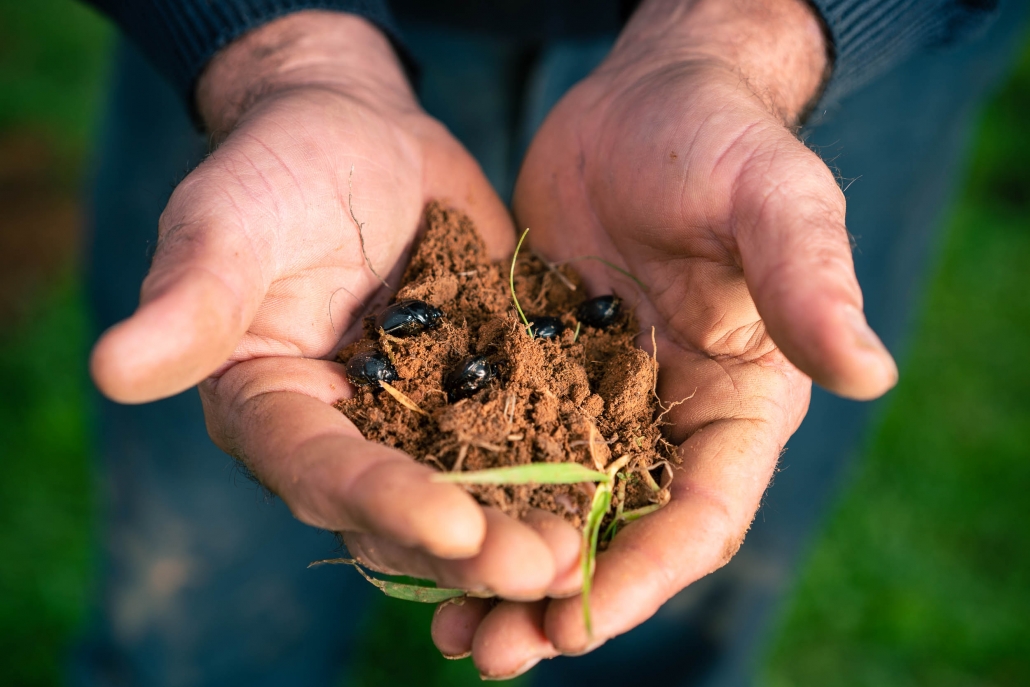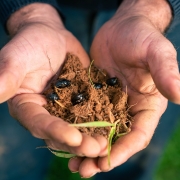Tiny ecosystem engineers
A single cow produces around 18 kg of manure each day. For a herd of 100 cows, that’s over 650 tonnes each year. That’s a lot of fertiliser!
Dung left on the soil surface releases nutrients and carbon to the atmosphere, through oxidation, or they are washed away and end up in waterways. Not only are beneficial nutrients lost but they become pollutants in the air and water. The amount of pasture available to grazing livestock is also reduced, as cattle will not eat grass growing near a cow pat.
Dung beetles can make a significant contribution to reducing these problems. By shredding and burying dung, they incorporate nutrients and carbon into the soil and stop losses to waterways and the atmosphere. Dung burial also means that more pasture is available for grazing and life cycles of internal parasites and flies are broken.
Dung beetle activity also has other benefits. The tunnels created by dung beetles improve the aeration, water permeability and water holding capacity of soils. Their activity also increases other biological activity (micro-organisms and earthworms), improves soil fertility and structure through mixing of clay sub-soils which results in stronger root growth and higher yields.

These benefits were recognised over half a century ago when the CSIRO launched its dung beetle project in 1968. The project aimed to introduce a range of dung beetle species into Australia, so that cattle dung would be shredded or buried within 48 hours in all of Australia’s climatic zones. Each dung beetle species is active for only a part of the year, so a range of species is required for activity over the full season.
Due to funding cuts the project was discontinued in 1984 with only around 50 of the proposed 150 species introduced by that stage. Of these, around 23 have established but do not cover the full extent of their predicted distribution ranges.
The Dung Beetle Ecosystem Engineers (DBEE) project is aiming to fill this gap. The five-year project, supported by MLA through funding from the Australian Government’s Rural Research & Development for Profit program, will fill seasonal and geographic gaps in the distribution of beetles across southern Australia as well as quantifying the benefits dung beetles provide for primary producers.
The DBEE project will conduct a nation-wide survey of dung beetles, import and breed three novel Mediterranean species and two endemic species and determining the economic value of dung beetles for sheep and beef producers as well as the understanding of the impact dung beetles have on the ecosystem.
For more information about the project visit their website: https://www.dungbeetles.com.au
Watershed Landcare would like to gauge interest for being involved in the project in our region. If you are interested in finding out more about dung beetles or doing a dung beetle survey on your property let us know: info@watershedlandcare.com.au.


